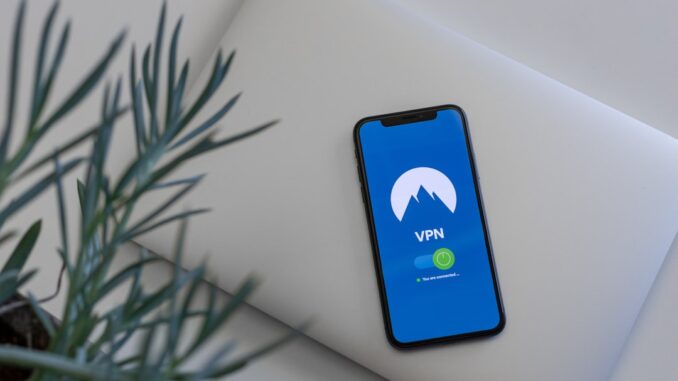
Summary
Hospitals and medical establishments are increasingly falling victim to ransomware and data breaches, with a recent incident compromising the details of hundreds of staff members. This concerning trend highlights the vulnerability of healthcare systems to cyberattacks, impacting patient trust and potentially compromising care. The financial and reputational repercussions of these breaches underscore the urgent need for robust cybersecurity measures in the healthcare sector.
Safeguard patient information with TrueNASs self-healing data technology.
Main Story
Okay, so let’s talk about something pretty serious: cybersecurity in healthcare. You wouldn’t think of hospitals as targets, would you? But the truth is, they’re increasingly under siege from cyberattacks. And honestly, it’s a worrying trend, isn’t it? It’s not just a few rogue incidents; we’re seeing more and more ransomware attacks and data breaches hitting medical establishments, and it’s not pretty.
Just recently, a nasty incident compromised the personal details of, get this, hundreds of hospital staff. Which is a HUGE red flag. It makes you wonder: if staff data isn’t safe, how secure are our patient records, really? And what about the knock-on effect on essential medical services? These are, understandably, some serious questions.
The thing is, these attacks aren’t just happening more often, they’re getting way more sophisticated. The specific details of this recent breach are still coming out, however, it shines a harsh spotlight on the broader problems facing the healthcare sector. See, hospitals are sitting on mountains of sensitive data: patient medical histories, financial information, even staff’s personal stuff. This data is like gold to cybercriminals, who are always looking for a quick payout. They can use it for identity theft, insurance fraud, or even sell it on the dark web. It’s wild, isn’t it? Then, there’s the ransomware angle. Remember WannaCry back in 2017? That was a mess, crippling systems in 150 countries, including hospitals. They hold these institutions hostage, and that can mean the difference between life or death for people who are critically ill.
The impact of these breaches goes way beyond just dollars and cents. You see, the reputational damage can be immense. If people don’t trust that their health information is secure, well, they might hesitate to seek help or share important details. And that loss of trust can have a long-lasting ripple effect. Plus, think about the implications for patient care. If hackers tamper with medical records, like say, medication details or allergy information, then it could lead to huge errors, misdiagnosis, or incorrect prescriptions, sometimes with potentially life-threatening outcomes. Seriously! The integrity of these records is paramount to safe healthcare, any compromise can create absolute havoc.
And let’s not forget the sheer financial hit these breaches cause. Hospitals end up spending HUGE amounts of money on investigations, security upgrades, credit monitoring for those affected, and potential lawsuits. It’s a nightmare! That money could obviously be much better spent on patient care and services. It’s like a vicious cycle, isn’t it?
So, what can be done? Well, hospitals and healthcare organizations need to make cybersecurity a top priority. That means putting in place robust security systems, providing regular employee training to raise awareness, and ensuring all their software is updated. They also need to conduct risk assessments to look out for and fix any vulnerabilities. And it’s not just a hospital thing; collaboration between healthcare providers, cybersecurity experts, and even government agencies is vital to keep up with these evolving threats, honestly, it’s the only way.
This latest breach, with those hundreds of staff details compromised, is a harsh reminder of just how crucial constant vigilance is. Protecting sensitive patient data and keeping our healthcare systems intact has to be the number one goal. If we fail at this, well, the consequences could be devastating for everyone. And, you know, as of today – January 23rd, 2025 – this is all accurate info. But, thing is, the cybersecurity landscape shifts all the time. That’s why staying informed and proactive is absolutely key. It’s not enough to just react; we need to be anticipating what’s coming.


So, are we saying that hospitals now need to add “cyberattack evasion” to their already long list of patient safety procedures? One more checklist item for the poor overworked staff.
That’s a great point! It’s definitely adding to the pressure. Perhaps incorporating cybersecurity training into existing safety protocols could streamline the process and make it less burdensome for staff? What strategies do you think might work best?
Editor: MedTechNews.Uk
Thank you to our Sponsor Esdebe – https://esdebe.com
So, the big concern is that *staff* data wasn’t safe, not necessarily the patients? Interesting prioritization there, given the post’s focus.
That’s an important point to consider! The focus on staff data does highlight the interconnectedness of security risks. A breach in one area can certainly indicate potential vulnerabilities across the entire system, including patient data. It’s all part of the same threat landscape.
Editor: MedTechNews.Uk
Thank you to our Sponsor Esdebe – https://esdebe.com
The increasing sophistication of these attacks is alarming, particularly the potential for manipulation of medical records, such as medication details, and the subsequent impact on patient safety.
Absolutely, the increasing sophistication of these attacks is a huge concern. As you rightly point out, the manipulation of medical records, especially medication details, poses a significant risk to patient safety, and highlights the critical need for proactive security measures.
Editor: MedTechNews.Uk
Thank you to our Sponsor Esdebe – https://esdebe.com
Mountains of data like gold to cybercriminals, eh? Sounds like they need a better heist movie, swapping bank vaults for patient records. “Ocean’s Eleven” meets “ER” maybe?